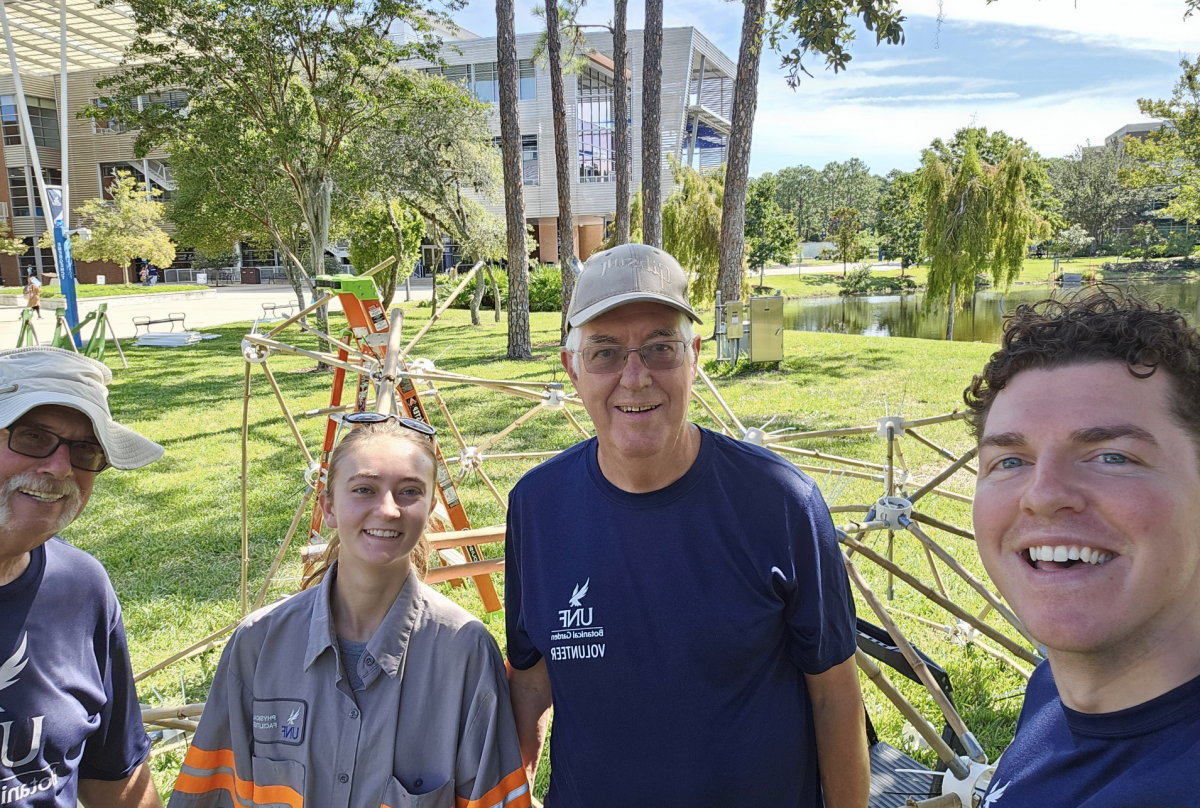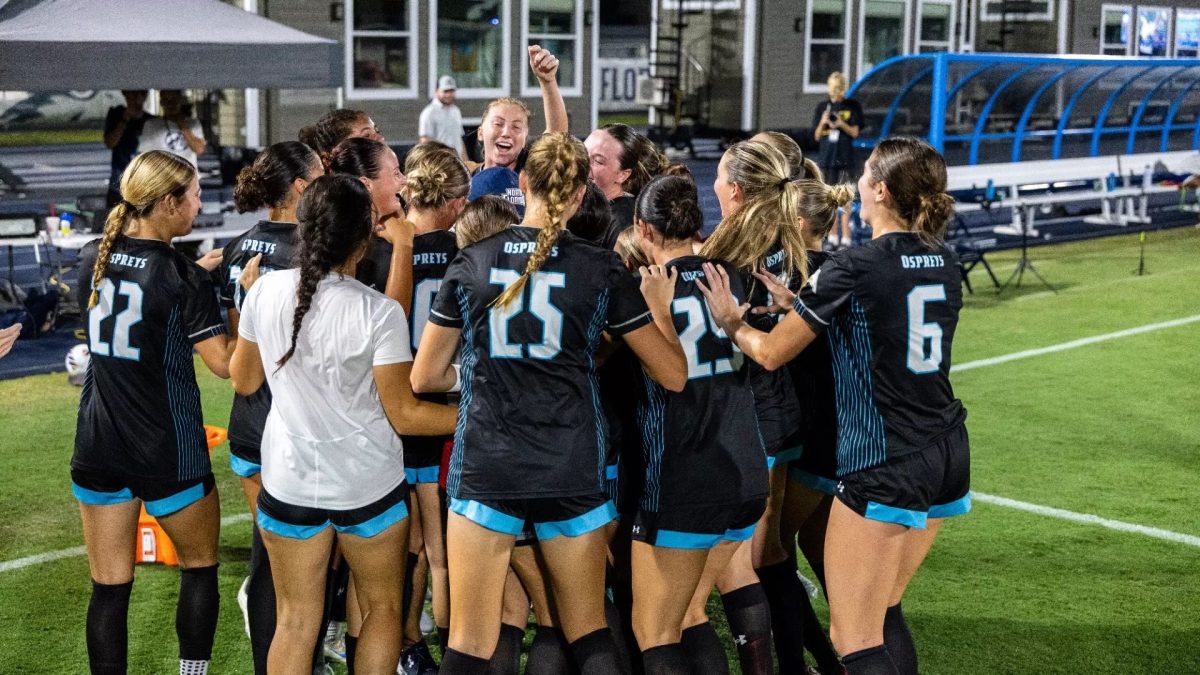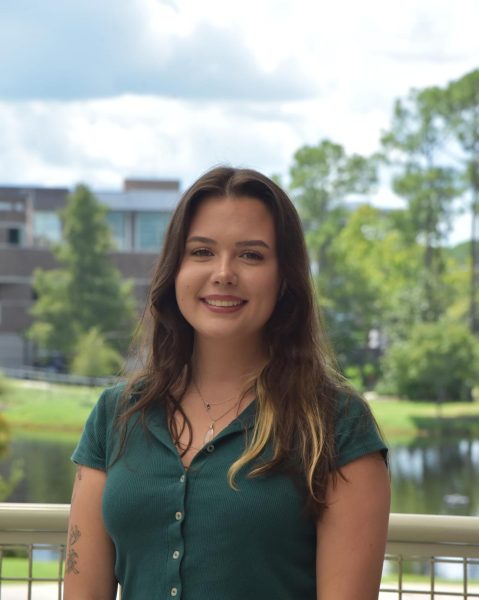As artificial intelligence transforms industries across the globe, the University of North Florida is working to integrate AI into its classrooms, research labs, and community initiatives—while keeping ethics and student success at the center, according to UNF experts.
A New Role for AI Leadership
Dr. Josh Gellers was recently appointed as UNF’s first Faculty Fellow for Artificial Intelligence. As Faculty Fellow for AI, he will lead UNF’s AI Strategic Plan, work with campus partners to expand AI literacy, support interdisciplinary research, and build community and industry partnerships that position UNF as a regional leader in AI innovation, according to UNF’s website.
Gellers said his mission is to act as a “node between all the stakeholders on campus,” including students, faculty, staff, and the local community.
With a background in environmental and human rights law, Gellers became interested in the ethical dimensions of AI after learning about Sophia, the humanoid robot granted honorary citizenship in Saudi Arabia. “I saw an opportunity to bring these conversations together—about rights, technology, and ethics,”Gellers said.
Currently, he works with UNF’s AI Council, guiding university-wide efforts to use AI thoughtfully and responsibly. “We’re not just thinking about the challenges,” he said. “We’re also trying to unlock the many benefits AI can offer the UNF community.”
UNF’s AI Council unites faculty, staff, students, and industry partners to position the university as a leader in AI. The council drives innovation across academics, research, operations, and community engagement through interdisciplinary collaboration and emerging technologies, according to their website.
Expanding AI Education
One of Gellers’ primary goals is faculty development. “We’re working to help faculty understand the ethical implications of AI in academia and how to use it responsibly,” he said. “That includes sample syllabus language, training sessions, and ongoing conversations about how generative AI should or shouldn’t be implemented in classrooms.”
“We’re less focused on teaching the tools themselves, and more on guiding faculty through the big questions,” said Gellers.
Additionally,UNF plans to ramp up its AI curriculum. This fall, the university will launch a non-academic AI certificate that will be open to anyone, according to Gellers.
“It’s designed to be a gentle entry point,” Gellers said. “Once a week, covering both the benefits and the pitfalls of AI, from the tools themselves to environmental and ethical concerns.”
An introductory digital badge in AI is already available for students, and a proposed AI minor in the College of Arts and Sciences is in the works. “We want multiple pathways,” Gellers said, “so that students and the community can get involved at whatever level they’re comfortable.”
AI in Action
Dr. Xudong Liu, associate professor in the School of Computing, is using AI to tackle real-world problems—especially in medicine. Liu leads four students in health-related AI projects, many through the university’s MedNexus initiative.
“Student success is our top priority,” Liu said. “If our faculty research is successful, students get hands-on experience and better job prospects.”
Liu also teaches AI-focused electives for computer science and data science majors, including the course “AI for All.”
Ethics are a big part of his teaching, said Liu.
“Ever since ChatGPT, I’ve dedicated a full lecture to AI research ethics,” he said. He teaches the AAAI Code of Ethics, which covers fairness, safety, accountability, and more. “There are about 25 principles we go over. Do no harm, ensure transparency—it’s important they understand this early.”
While Liu allows discussion of AI tools in class, he draws a line when it comes to assessment: “In my syllabus, it’s clear—generative AI can’t be used to produce assignment work. Students need to show what they know.”
Looking Ahead
UNF’s AI Council has already started building local partnerships, including collaborations with Florida Blue, who is helping support the certificate program. Eventually, there are goals to have representatives from law, healthcare, and other industries to provide insight into how AI is impacting their sectors and how UNF can help upskill the future workforce, according to Gellers.
“We’re deepening relationships with partners in new ways,” said Gellers.
Gellers sees the university’s long-term AI goals aligning with broader institutional strategies. “My vision is aligned with our AI Council. To make UNF a destination of choice for people who want to learn about AI,” said Gellers.
Liu said AI is expected to play a key role in enhancing student efficiency and improving learning outcomes at UNF. While challenges exist, its potential to support education outweighs the drawbacks.
“UNF is embracing AI and advancing technological innovation across campus, integrating it into education, research, and community initiatives,” said Liu
___
For more information or news tips, or if you see an error in this story or have any compliments or concerns, contact editor@unfspinnaker.com.













